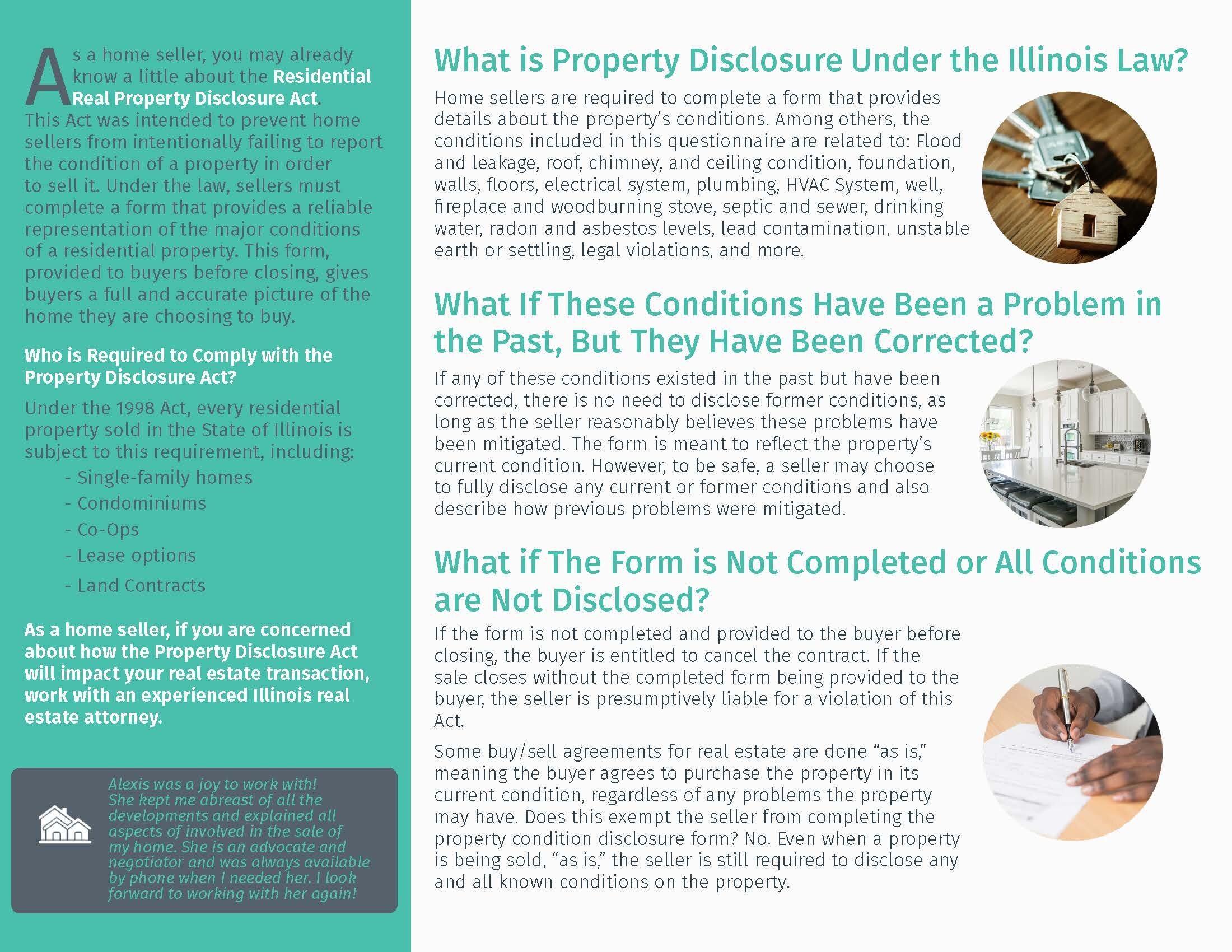Why You Shouldn't Try to Hide Problems From Potential Buyers
State laws require sellers to disclose problems with a house to prospective buyers. If you are legally required to disclose an issue and you don’t, the deal may fall through or you may be sued after the buyer learns that you covered up the problem.
What are Sellers Required to Disclose?
Laws on which facts sellers are required to disclose to potential buyers vary from state to state. In general, sellers must reveal information that could affect a home’s value. For Illinois specific requirements, check out our blog What Sellers Need to Know about the Illinois Property Disclosure Act.
Some states require sellers to disclose a death that was not due to natural causes that occurred on the property. Others require disclosures about a death caused by the condition of the property.
A variety of state laws require sellers to disclose nuisances, such as noise and odors. Depending on where you live, you may be required to reveal the presence of hazardous substances, lead paint, drainage problems, previous water damage, the risk of natural disasters, pests or paranormal activity.
If the house is missing any appliances or key components that a buyer would expect, you should disclose that. If you had the house repaired, you should inform potential buyers because they may want to have the home inspector focus on those areas to make sure that the repairs were performed correctly. Buyers may also want the inspector to check for other problems that might be related to the issue you had repaired.
If the house belongs to a homeowners or condo association, that must be disclosed and a Paid Assessment Letter must be presented at closing so that the buyer is not confronted with unexpected fees after moving in.
Don’t Try to Cover Up Potentially Damaging Information
If you fail to disclose material facts to a potential buyer as required by your state’s laws, the buyer may discover the information independently and may decide not to buy the house. Then you may have to relist your home and start looking for another buyer. You may also have to delay your move or continue to make mortgage payments after you have moved into your new home. If the sale goes ahead and the buyer learns that you failed to disclose important information after moving in, the buyer may sue you.
Your real estate agent can tell you what facts your state’s laws require you to disclose. We have a brochure to help answer your questions relating to the Illinois Property Disclosure Act. You can preview it and download it below. Even if a disclosure is not legally required, it may be in your best interest to be up front about it so you won’t have to worry that a potential buyer might back out of the deal later. If you have any questions schedule a Free 15 consult with us to understand your legal obligations.









